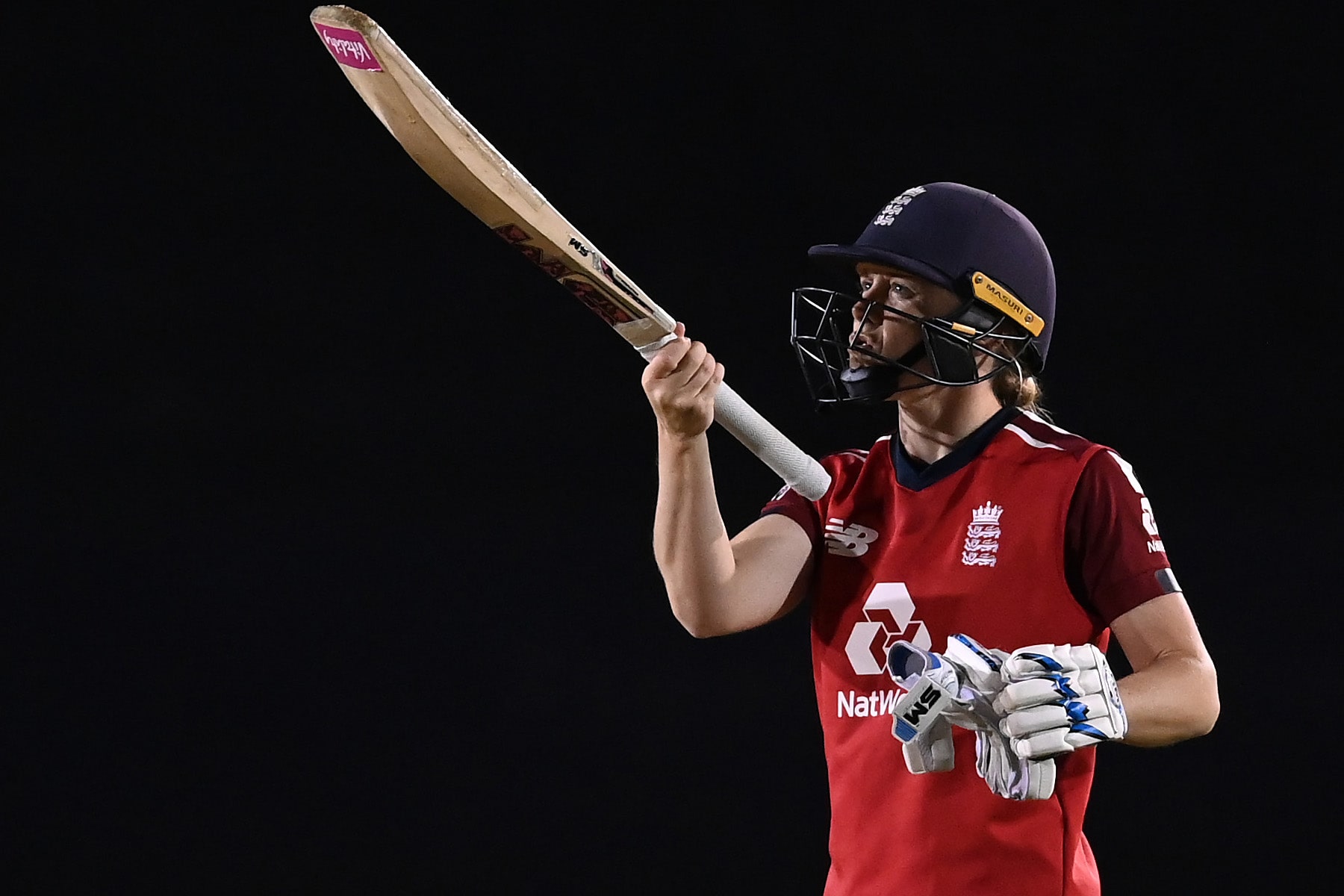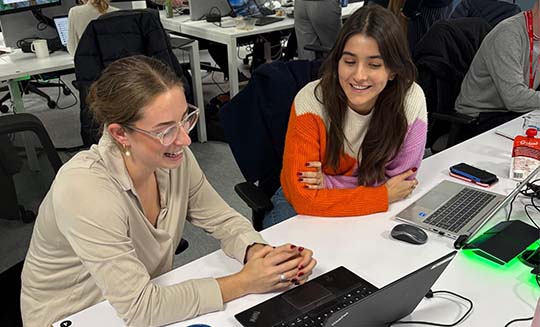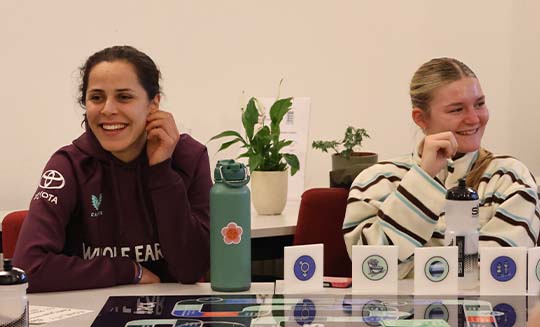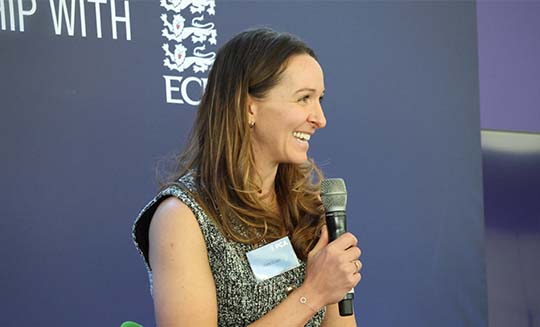PCA PRESS RELEASE
A leader of the women's game, Heather Knight was one of our featured interviewees for issue 27 of Beyond the Boundaries.
To see more articles, click here
Few – if any – individuals have made a greater impact on English women’s cricket in recent times than Heather Knight.
Not content with her playing achievements, having famously led England to ICC Cricket World Cup glory in front of a roaring crowd of 24,000 at Lord’s in 2017, the all-rounder has also been blazing a trail when it comes to progressing the game off the pitch.
In her new role as Vice Chair of the PCA Players’ Committee, working alongside fellow Vice Chair James Harris and Chairman Daryl Mitchell, Knight has been an influential voice at the table when it has come to negotiating key issues such as Hundred contracts, the formation of the eight new regional centres and the induction of a new cohort of female members into the PCA in 2020.
On a global level, Knight is England’s representative on the Women’s Player Advisory Group within the Federation of International Cricketers’ Associations (FICA), meaning she helps to ensure that collective players’ views are heard from a worldwide point of view.
The PCA’s Communications Executive Peter Clark sat down with Heather to discuss her vision for the future of international women’s cricket, a unique summer with England in the bio-secure bubble, the success of the Rachael Heyhoe Flint Trophy and more.
- Fair to say it’s been a busy year for you for a number of reasons?
- It certainly has! In terms of Covid-19, I’ve been involved in many conversations with the ECB and the England team, and as cricketers we’ve had to be very adaptable and think quite positively when things have been cancelled or are constantly changing. I’ve really enjoyed being a part of those discussions in my role as Vice Chair of the PCA. Especially when we wanted to implement pay cuts at the peak of the pandemic, those discussions were unique and challenging in a positive way.
- Have you enjoyed taking on the extra responsibility?
- It’s been really nice to be involved. I think it’s great that there are now women’s voices in that space, which will hopefully keep on pushing the game forward. It’s been an unusual start, having board meetings on Zoom with big issues to discuss and decisions to be made, but I feel I’ve really learned a lot from it and I’m just looking forward to continuing to be involved.
- How is the Vice Chair role setting you up for life after cricket?
- It’s just a different experience. When you’re playing cricket, you’re in such a bubble, sometimes literally! Being involved in a different side of things has definitely given me some skills to take on in general life, and hopefully when I’ve finished cricket the experience of being on a board will stand me in good stead for what I choose to do next.
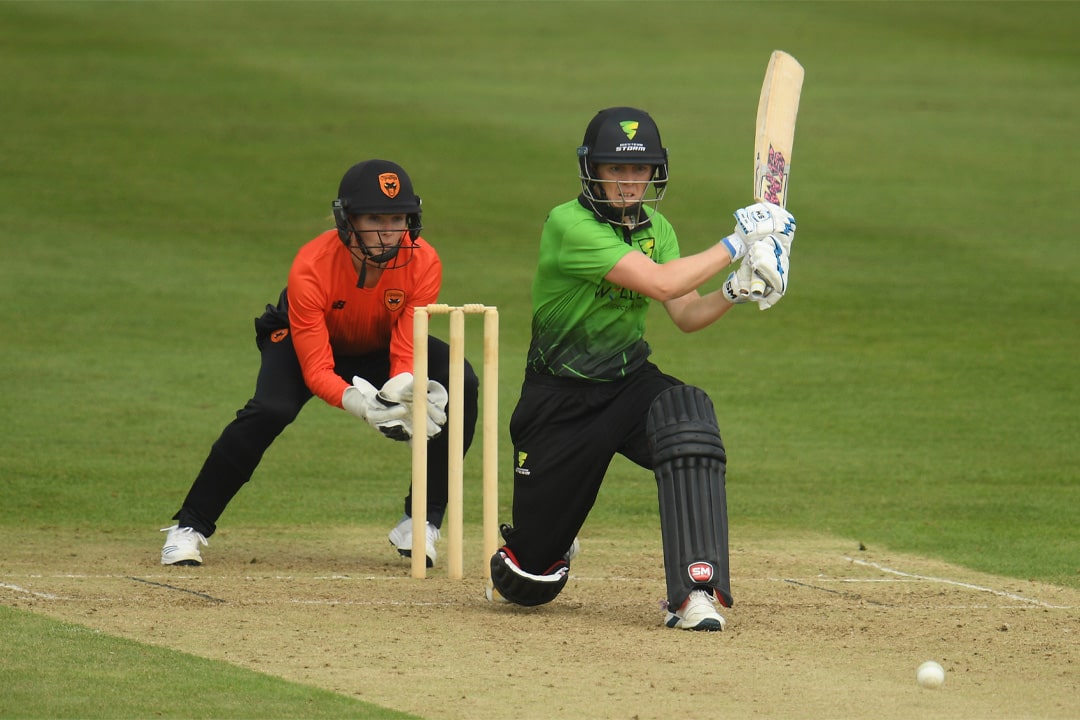
- Your thoughts on the Rachael Heyhoe Flint Trophy, from its inception to being involved on the pitch?
- Even just being able to start the summer was incredible. With the pandemic and everything else that’s been going on, things were obviously slightly thrown together at the last minute, so it’s a credit to the ECB and everyone else involved. Originally, the England squad weren’t even going to play the first two games of the competition, so it was really nice to have been involved in that and be a part of the tournament. It’s put domestic cricket in a great place in this country to continue to keep on growing.
- Did it feel particularly important given the postponement of the Hundred?
- I think it was really important that the same treatment was given to both the men’s and the women’s game. The clubs were in a tough situation because everything was put on hold and a lot of people were put on furlough. The competition was brand new so to turn it around at the very last minute with eight new teams was seriously impressive.
- Did any names in particular jump out at you during the Rachael Heyhoe Flint Trophy?
- There were a lot of very good performances. Sophie Luff was an absolute run machine down in Bristol for Western Storm, and the MVP Georgia Adams did very well to captain the winning side with the Vipers. There were some good performances from youngsters as well – Charlie Dean and Hannah Baker stand out in particular. These young girls are getting great opportunities to push on to the next level.
- And how much of a boost was it to see the winner of the MVP receiving a £1,000 cash prize?
- I love the MVP! I know the domestic girls enjoyed competing with each other to win the cash prize, and a few of them were gunning to win it, so congratulations to Georgia Adams who was the obvious player of the tournament, all things considered.
“There are some boards that are really pushing the women’s game forward. But you want to see that all over the world.”
HEATHER KNIGHT
- How will the new female members joining the PCA take women’s cricket to the next level?
- It’s a landmark moment, isn’t it? To be honest, it’s something I didn’t think I’d see for a long time, so it’s exciting to see where the game’s come from and ultimately where it could end up. Professionalism throughout the game, not just at the top, is going to be massively important moving forward.
- How important is it to develop that talent pool below international level?
- It really helps. It won’t happen straight away, but over the next few years it’s going to really aid the international team and help more people to continue developing as cricketers. Putting in strong performances is really going to get you noticed, which is a great thing. People who are on the fringes of the England squad will have a chance to push their case for selection, which will ultimately make English cricket that bit stronger.
- What are your thoughts on the future of international women’s cricket?
- It’s still quite uncertain, to be honest. Obviously, the World Cup we had planned in March 2021 has been cancelled. There are some boards that are really pushing the women’s game forward, putting in the extra money and effort that’s required at the moment, but you want to see that all over the world. The series against the West Indies in September 2020 was the first opportunity to get back playing, and you hope that that happens all over the world and the game continues to keep recovering with the momentum that it’s built up during the past few World Cups.
- How do you push the women’s game forward in parts of the world that seem reluctant to do so?
- There’s definitely a discrepancy between different women’s teams. FICA are a good part of that in supporting the women’s game and player rights all over the world. We need to keep pushing that hard, especially now when it’s in a much tougher environment to get cricket on. We need to keep hearing voices that are supporting the women’s game on boards and in players’ committees. There aren’t a huge amount of voices there at the moment and you want to keep it on the table and have people fighting for the game as a whole.
Catch up on issue 27 of Beyond the Boundaries below:
